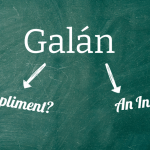¡Ay, Caramba! Are These Spanish Words Compliments or Insults?
Are you ready to test your knowledge of Spanish language and culture? Take our quiz, ¡Ay, Caramba! Are These Spanish Words Compliments or Insults?, and find out if you can distinguish between compliments and insults in Spanish.
With over 500 million Spanish speakers worldwide, it's important to understand the nuances of the language. In this quiz, we'll present you with a series of Spanish words and phrases, and you'll have to determine whether they are compliments or insults.
Some of the words and phrases may seem straightforward, while others may be more difficult to decipher. But don't worry, we'll provide you with explanations and examples to help you understand the meaning behind each word or phrase.
Whether you're a native Spanish speaker or just starting to learn the language, this quiz is a fun and educational way to test your skills. So, grab a pen and paper, and let's get started!
Remember, in Spanish, the tone and context of a word or phrase can completely change its meaning. So, pay close attention to the details and see if you can distinguish between compliments and insults in this exciting quiz!
FAQs about ¡Ay, Caramba! Are These Spanish Words Compliments or Insults?
1. What does "¡Ay, Caramba!" mean?
"¡Ay, Caramba!" is an exclamation of surprise or frustration in Spanish. It is similar to saying "Oh my gosh!" or "Wow!" in English.
2. Is "¡Ay, Caramba!" a compliment or an insult?
"¡Ay, Caramba!" is neither a compliment nor an insult. It is simply an expression of emotion. However, the tone and context in which it is used can affect how it is perceived by others.
3. Are there any other Spanish words or phrases that can be mistaken for compliments or insults?
Yes, there are many Spanish words and phrases that can be misunderstood by non-native speakers. For example, "guapo" can mean "handsome" or "brave," but it can also be used sarcastically to mean "conceited." It is important to understand the context and tone in which these words are used to avoid misunderstandings.





